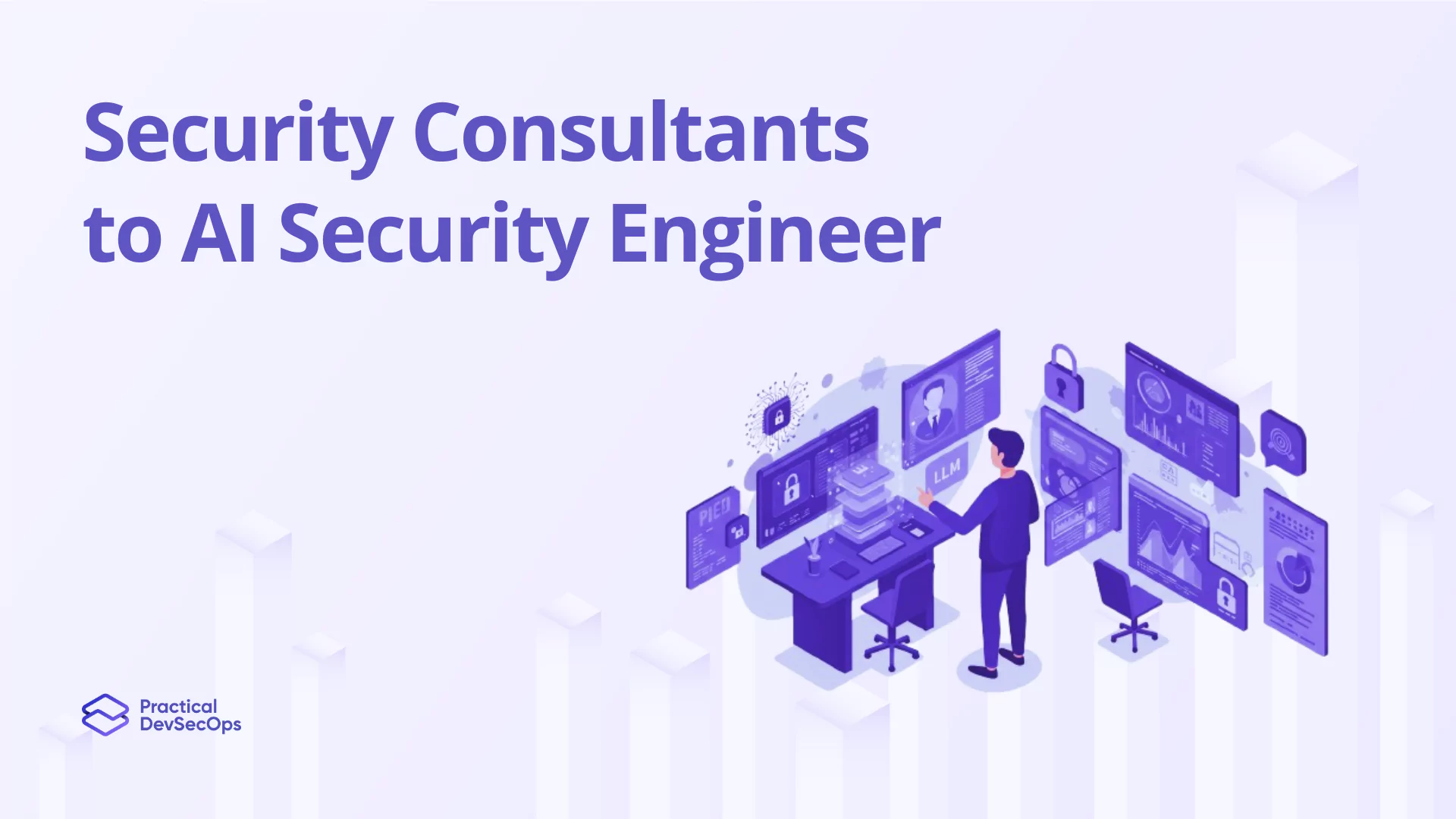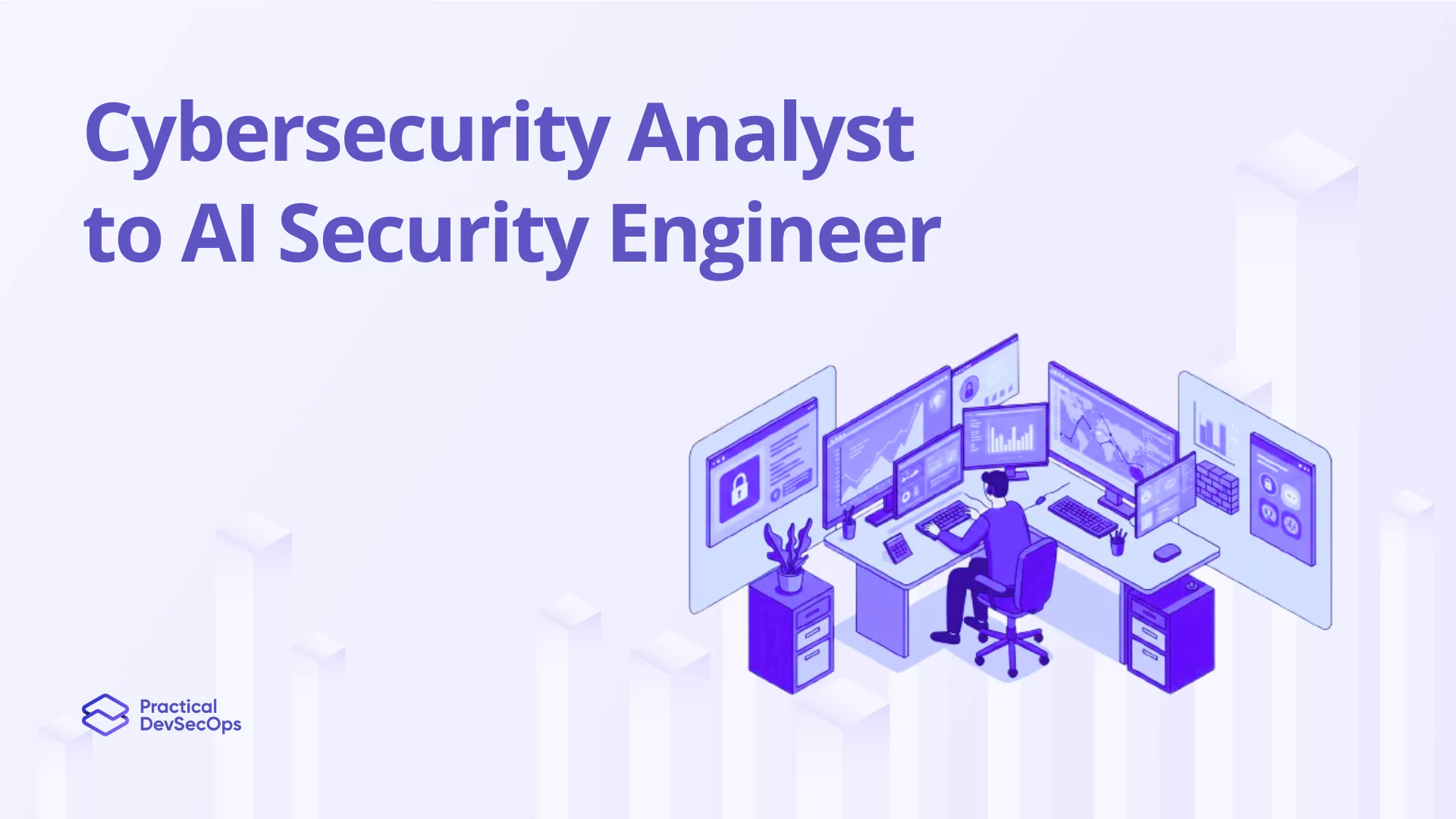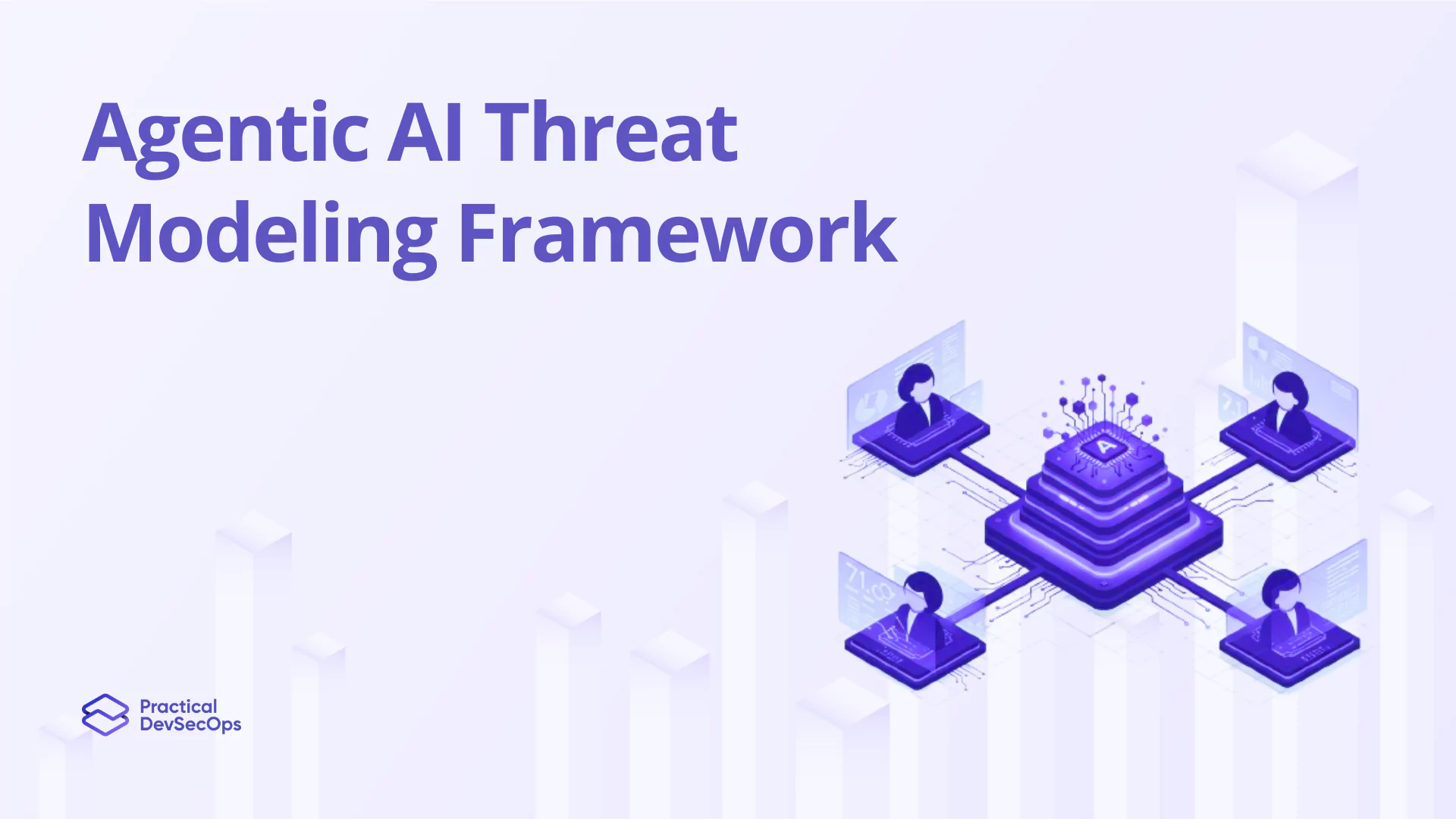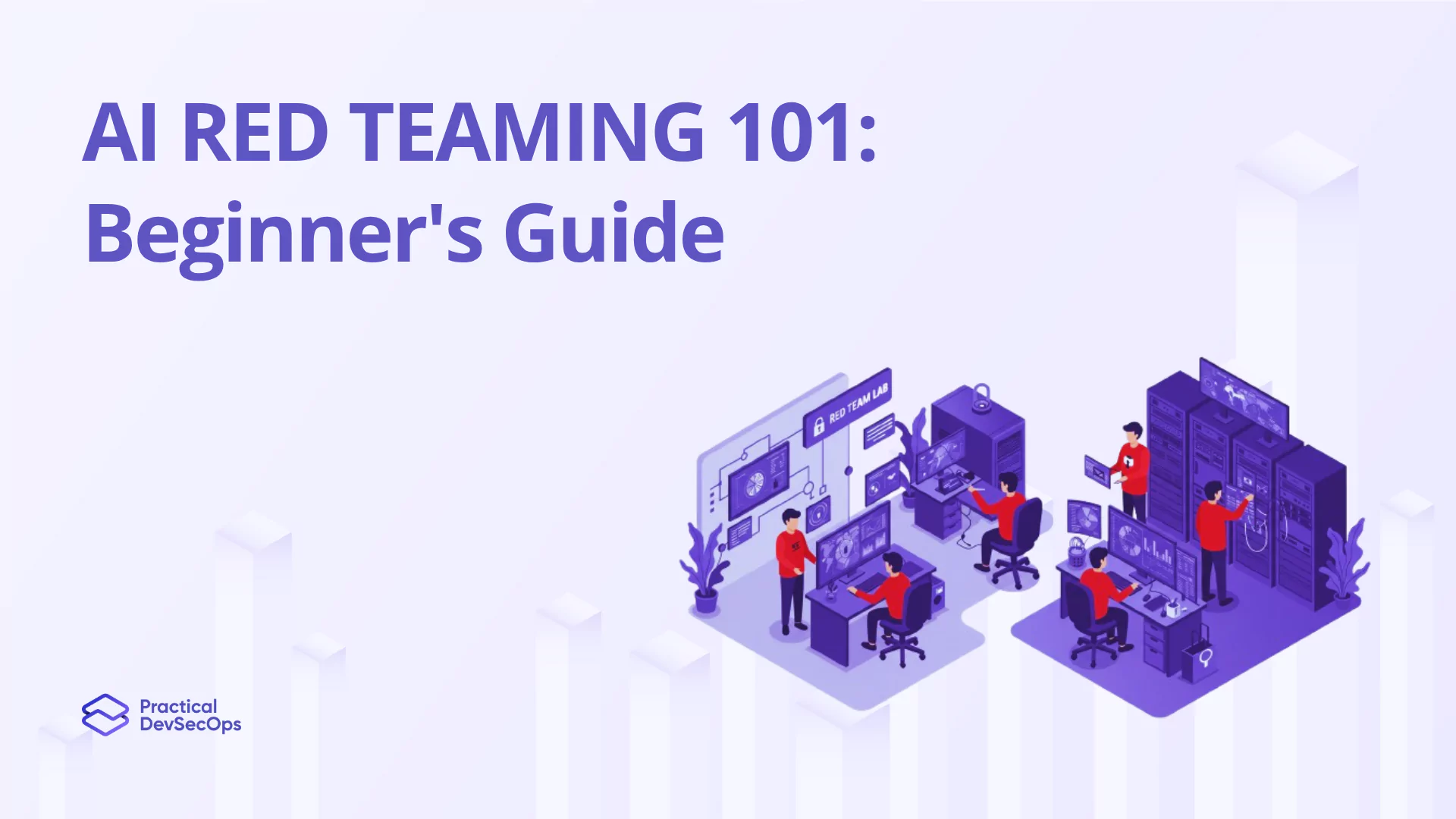AI and cybersecurity are colliding, and this is creating numerous new opportunities. The most in-demand job is the AI Security Engineer, as the market is maturing rapidly. AI security roles and the number of employees in the sector in the US increased by 25% between March 2024 and March 2025; thus, this is set to become one of the fastest-growing tech sectors.
The world AI security market will reach $15.6 billion by 2026, and the annual growth rate is 31.2%. Information security consultants are the ideal type of professional to pivot into these roles, as their skill sets, which include risk analysis, incident response, and security of systems, are ideally suited to AI. Their primary role will be to protect intelligent systems against emerging threats; therefore, they are well-positioned for success in this field.
While this guide will give you a broad overview of the market and the reasons why information security consultants make perfect candidates for AI security roles, it will also provide a step-by-step process to help you make the move into this exciting area of work.
Also read about MITRE ATLAS Framework
Why Security Consultants Should Consider AI Security Engineering
AI makes security more complex, so organizations need people who understand both cybersecurity and emerging technology. And that’s where security consultants come in, and you already know how to assess risk, manage vulnerabilities, and respond to incidents.
Those skills are just as relevant when it comes to AI, because as more teams deliver AI features, they will need people who can secure models, prevent AI-specific attacks, and protect intelligent systems. Moving to AI security engineering is a smart way to futureproof your career; therefore, it also tends to come with a higher salary.
Numerous studies suggest that AI security engineers command 20-30% higher salaries than traditional security positions; thus, average salaries fall between $130,000 and $185,000, depending on your experience and location.
This field rewards individuals who are quick learners, deep technical thinkers, and problem solvers, and by learning AI and machine learning, you can help organizations stay ahead of the curve in defending against increasingly sophisticated threats while commanding an even higher salary.
Also read about AI Security Engineer Roadmap
Core Skills Gap Analysis
Security consultants come with a plethora of skills necessary for security work, many of which directly translate to the work of AI Security Engineering. Here is what they have:
Risk Assessment and Threat Modeling:
Security consultants are adept at identifying potential weaknesses and creating a remediation process; this is the essence of securing an AI system from potential threats.
Security Frameworks Familiarity:
Knowing frameworks, e,g, ISO 27001 and NIST, helps security consultants build security programs in a compliant and structured manner. This is essential to working in an AI environment, where activities can be under significant regulatory scrutiny.
Incident Response and Forensics:
Consultants’ experience with breaches and understanding of attack paths position them to explore breaches pertaining to security incidents in AI systems.
Compliance and Governance Knowledge:
Consultants have regulatory requirements around data privacy and security top of mind, helping you ensure your AI deployment is compliant.
| Skill Area | Security Consultants Possess | Relevance to AI Security Engineering |
| Risk Assessment & Threat Modeling | Yes | Crucial for protecting AI models and datasets |
| Security Frameworks (ISO, NIST) | Yes | Guides secure AI implementation and regulatory adherence |
| Incident Response & Forensics | Yes | Vital for identifying AI-targeted cyberattacks |
| Compliance & Governance | Yes | Ensures AI systems meet legal and ethical standards |
Also read about what AI Security Professionals Do?
Recommended Learning Path & Certification
Getting Started: The Certified AI Security Professional Course
The Certified AI Security Professional Course provides a full route for security consultants with a willingness to transition their traditional security skill set to the AI realm. This certification is for professionals that want to defend against and understand the threats associated with AI without having to become machine learning engineers.
Course Prerequisites
The good news is that the entry barrier is lower than you might expect. You’ll need:
- Basic Linux skills: If you can navigate directories, create folders, and run simple commands (ls, cd, mkdir), you’re ready to start
- Optional scripting knowledge: While familiarity with Python, Golang, or Ruby is helpful, it’s not mandatory – the course teaches what you need. This means most security consultants already meet the prerequisites, making this an accessible starting point for your AI security journey.
What You’ll Actually Learn
The course goes beyond theory, focusing on practical skills that security professionals can immediately apply:
Understanding AI Threats: You’ll work with industry-standard frameworks like MITRE ATLAS and OWASP Top 10 for LLMs. Through hands-on labs, you’ll experience firsthand how prompt injection works, execute adversarial attacks, and understand model poisoning – not just in theory, but by actually doing it in controlled environments.
Securing the AI Supply Chain: Learn to identify vulnerabilities in AI development pipelines using practical techniques like model signing and creating Software Bills of Materials (SBOMs). You’ll practice vulnerability scanning specific to AI systems and learn to prevent dependency attacks that traditional security tools might miss.
AISpecific Threat Modeling: Apply familiar frameworks like STRIDE to AI systems, but with a twist – you’ll learn to identify vulnerabilities unique to machine learning models and AI infrastructure. This builds directly on your existing threat modeling experience while adding AI-specific considerations.
Protecting Production Systems: Discover how to secure DevOps environments against AI-targeted attacks on CI/CD pipelines and automated decision systems. You’ll learn defense techniques that work in real production environments, not just academic scenarios.
Compliance and Ethics: The regulatory terrain, including ISO/IEC 42001 and the EU AI Act, will be navigated. This is valuable information because organizations need individuals who can address both the technical and compliance challenges associated with AI security more than ever.
Also read about How to prepare for AI Security Certification?
Hands-On Projects That Build Real Skills and Support Browser-Based Lab
The course emphasizes practical application through diverse projects:
Building and Breaking:
Design a chatbot in Python, and then use a strategy to attack it. Build text classification models using TensorFlow, and then learn how to attack that too. This way, you think like a developer, and then you think like an attacker.
Real Attack Simulations:
Experiment with AI attacks in a safe environment and understand prompt injection attacks, training data poisoning, and overfitting attacks. Learn how they work and how to defend against them; therefore, experiment with Adversarial Robustness Toolbox and Foolbox to simulate real-world attacks. Identify model vulnerabilities and understand how attackers can exploit AI; thus, learn how to defend against them by using these tools to simulate attacks.
Security Implementation:
Use actual security tools and learn to scan models, so check dependencies and make SBOMs. Create small projects that seem like real projects: scan LLMs for vulnerabilities, pin dependencies, and connect a secure AI pipeline from data to deployment; therefore, it’s to make these actions common. To identify risks sooner and mitigate them quicker, thus to achieve this goal, these steps are necessary.
Advanced Techniques:
Look up more attacks and practice backdoor attacks with [BackdoorBox] to see how covert triggers can be embedded in models. Experiment with [methods to edit models] to see how adversaries can change a model’s behavior post-training, and read about [supply chain attacks] like inserting malicious code inside dependencies. The more attacks you understand and learn about, the better you will become at early detection and building secure systems; therefore, you will be a more effective practitioner.
Also read about AI Security Checklist
Making It Work for Your Schedule
The structured approach allows you to learn while staying in your normal role. Each module is connected to previous modules so that there is a clear path to go from fundamentals to more advanced implementation. The labs are hands-on and designed to fit in your schedule, allowing you to juggle work responsibilities and learning.
This certification is more than just adding “AI” to your resume. Your certification comes complete with demonstrable skills based on achievable, hands-on projects, which you can present to employers to show that you can identify, evaluate, and respond to the security risks associated with AI in the real world.
Practical Transition Strategy
Transitioning from a security consultant to an AI security engineer does not require resigning from your job, nor do you have to “go completely back to square one.” Here’s a tactical way to utilize your existing role to gain new expertise.
Start Where You Are:
Start to weave AI security assessments into your current consulting work. When you are assessing these systems for clients, start to ask questions about their AI/ML implementations. Look for blueprints of APIs being exposed, look at how these models are trained, and look at how their data is managed. This right away provides value and allows you to build your practical experience.
Join the community:
Join the AI security community. Get experience and start with open-source projects on GitHub, so fix a doc, write a test, and file a good issue. It all matters because you can join [OWASP AI Security]( and [MLSecOps]( on Discord and their forums, thus asking questions and sharing your work. Learn from real-world practitioners; therefore, these relationships turn into mentorships and referrals.
Target Hybrid Roles:
Be sure to look for roles labeled “Security Consultant AI Systems” or “Security Architect ML Focus,” rather than pure AI engineering roles at the start. These kinds of roles are crossover roles that still utilize your security experience while allowing you to develop your AI-specific skills.
Build Your Portfolio:
Record every AI security project, assessment, or tool you develop. Share case studies (anonymized) on LinkedIn or personal blogs. Having a GitHub repository with even basic AI security scripts shows proactivity and renders practical capability to future employers.
Realistic Timeline:
With focused effort, you can position yourself for transition within 2 months—enough time to complete certification, contribute to open-source projects, and build a compelling portfolio.
Conclusion
AI and cybersecurity convergence offers unparalleled opportunities for your skill set as a security consultant. You have existing security consulting skills in threat modeling, risk assessment, and compliance, and you position yourself perfectly for AI security engineering, given continued market growth of 31.2% per year, rising demand for AI security specialists, and your existing skills to transition into this area from traditional security consulting.
In a matter of two months, you can transition your existing security skillset into AI-related competencies and join the ranks of security professionals earning high salaries in a rapidly evolving sector. Are you ready to take advantage of this opportunity? Sign up today for the Certified AI Security Professional (CAISP) course and begin your transition to AI Security Engineer. Enroll today!
Also read about Building a Career in AI Security
FAQs
What’s the average salary difference between a security consultant and an AI Security Engineer?
On average, Security Consultants in the US earn about $176,654 yearly, while according to ZipRecruiter, AI Security Engineers make around $155,143, meaning Security Consultants earn about 12% more. However, salaries depend on location, role, and experience. Globally, US salaries are much higher than in countries like India. Both fields offer strong growth and high earning potential, with AI security roles expected to rise as technology advances.
How long does it take to transition from Security Consultant to AI Security Engineer?
Security consultants can successfully transition to AI Security Engineer roles within 60 days with proper planning and focused training. The Certified AI Security Professional (CAISP) Course provides an accelerated pathway through intensive, hands-on learning that transforms existing security expertise into specialized AI security skills.
What Skills Security Consultants Will Learn:
- LLM Vulnerability Assessment – Identify and mitigate LLM Top 10 vulnerabilities, including prompt injection, data poisoning, and model theft attacks targeting enterprise language models.
- AI Supply Chain Security – Block AI supply chain attacks by securing model pipelines, validating data sources, and implementing integrity checks throughout development lifecycles.
- MITRE ATLAS Framework – Apply MITRE ATLAS defensive strategies for adversarial attack detection, model robustness testing, and AI threat modeling.
- AI Risk Management – Assess AI-specific risks, including bias detection, model governance, compliance requirements, and production security controls.
What’s the most important AI concept for security consultants to learn first?
The most important AI concept for security consultants to learn first is AI-powered threat detection and anomaly detection. This involves using AI to identify unusual patterns, behaviors, and potential threats in real time by analyzing vast amounts of data. Mastering how AI detects cyber threats, reduces false alarms, and automates incident response helps consultants effectively enhance security defenses and respond faster to attacks.
Which AI security certification should I do?
As a security professional, the best AI security certification to pursue first is the Certified AI Security Professional (CAISP) course. It offers a comprehensive introduction to AI security, covering AI/ML basics, threat detection, and hands-on browser-based labs. The course requires only basic computer knowledge, making it beginner-friendly. It emphasizes practical skills and includes a proctored exam to validate your knowledge, preparing you well for AI security roles.
What industries have the highest demand for AI Security Engineers?
The industries with the highest demand for AI Security Engineers include:
- Defense and Government: Protect critical national security systems from AI-powered cyber threats.
- Finance and Banking: Secure AI-driven financial transactions and prevent adversarial attacks on machine learning systems.
- Technology and IT Services: Focus on cloud security, AI threat detection, and safeguarding digital infrastructure.
- Healthcare: Protect sensitive patient data and AI-enabled diagnostic tools from attacks.
These sectors urgently need experts to defend against evolving AI-related security risks.
What are the organizations that are hiring AI Security Specialist?
In 2025, tech giants, AI startups, cybersecurity firms, and consultancies (e.g., Amazon, Zoom, OpenAI, Anthropic, CloudSEK, and EY) will be hiring AI Security Specialists. The demand for AI Security Specialists is particularly high in tech, finance, healthcare, and defense, with remote and on-site roles available globally.
The Certified AI Security Professional (CAISP) course from Practical DevSecOps is designed to deliver practical experience in AI security, making it a very marketable skill for employers. Professionals benefit from developing practical industry skills to defend AI systems across multiple industry sectors, along with hands-on AI security experience.
What do you need to be an AI Security Specialist?
To become an AI Security Specialist, you require a strong foundation in both cybersecurity and artificial intelligence. Key requirements include knowledge of AI/ML concepts, programming skills (especially Python), experience with cybersecurity tools, and understanding of threat detection and risk management. Certifications like the Certified AI Security Professional Course help validate skills. Analytical thinking, problem-solving, and continuous learning to keep up with evolving AI threats are essential.




